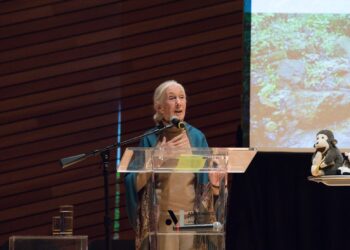Anil Rachamalla @ End Now Foundation
In a bold move to curb the spread of vulgar and hyper-sexual content, the Indian government has banned 25 OTT platforms as of July 2025, citing their role in commercialising ‘filth’ without warnings or age restrictions. The decision, aimed at protecting families and children, has sparked heated debate about freedom, creativity, and the blurred line between expression and exploitation in the digital age.
The rise of digital vulgarity
Over the past few years, OTT platforms and social media have been flooded with content teetering on the edge of pornography, often masked as ‘bold’ or ‘realistic’ narratives. From hyper-sexual shows to provocative social media posts, this content has infiltrated homes, reaching children and teens through unregulated screens. The Union government’s ban targets platforms accused of prioritizing profit over ethics, bypassing age filters, and ignoring the psychological impact on young viewers.
Why the ban?
The decision follows mounting concerns over:
– Unfiltered access: Children consume adult content on devices handed to them by parents, often unknowingly.
– Toxic influence: Teens face abusive language and unrealistic body standards from influencers chasing engagement over ethics.
– Cultural disconnect: Families, once united by shared TV viewing, are now divided by devices and unfiltered content.
– Societal harm: High-profile cases, like a Kerala performance art piece where children painted a naked body or a magazine cover stylizing breastfeeding for virality, have raised questions about normalizing questionable content under the guise of art.
The government argues these platforms aren’t fostering meaningful dialogue but exploiting lax regulations to commodify nudity and sensationalism.
Hypocrisy in the spotlight
The ban has exposed selective outrage in the industry. Many Bollywood stars, vocal against AI-generated deepfakes like the Rashmika Mandanna case, have remained silent on the deliberate spread of vulgar OTT content. Critics ask: Why condemn one form of exploitation while ignoring another?
Beyond bans: A call for ethical regulation
The End Now Foundation, a digital wellbeing advocacy group, emphasizes that blanket bans alone won’t solve the problem. Instead, they propose:
– Digital literacy: Programs to educate students, parents, and teachers about navigating online content.
– Ethics code: A Digital Content Ethics Code, similar to film and TV regulations.
– Robust age verification: Systems that can’t be easily bypassed.
– Parental controls: Mandatory, user-friendly tools for all platforms.
– Third-party audits: Independent verification of OTT content for ethical compliance.
Violators of obscenity norms will face legal consequences, including fines and potential imprisonment.
The family room test
The Foundation urges creators and platforms to ask: Would you watch this with your kids and parents in the room? If the answer is no, it’s time to rethink. This ‘Family Room Test’ aims to ensure content reflects human dignity, not voyeurism, while preserving creative freedom within ethical boundaries.
A digital commons for all
India’s ban on 25 OTT platforms signals a shift toward reclaiming the digital space as a place of dignity, not desire. As the nation grapples with balancing freedom and responsibility, the message is clear: entertainment must not come at the cost of society’s moral fabric. The challenge now is to foster creativity while protecting the next generation from the digital flood of vulgarity.
Disclaimer: Views reflect the growing concern over unchecked obscenity in digital spaces, rooted in extensive research on digital well-being.

Anil Rachamalla
Founder of End Now Foundation, Internet Ethics & Digital Wellness Expert
End Now Foundation is India’s pioneering non-profit organization dedicated to promoting better internet ethics and digital well-being. With a core mission of advocating for digital safety, we collaborate across sectors to raise awareness and empower communities








